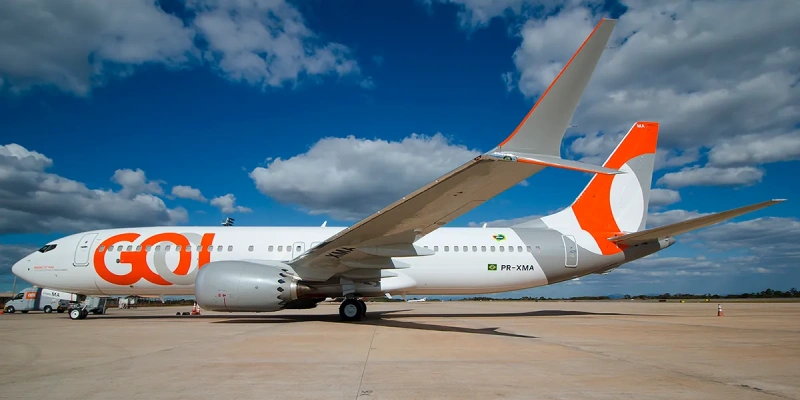The global aviation industry faces another blow following the temporary closure of airspace over Qatar, the United Arab Emirates, Bahrain, and Kuwait. This measure came after Iran attacked the U.S. military base at Al Udeid, located in Doha, further escalating tensions in the already volatile Middle East.
On Sunday, the United States bombed key nuclear facilities in Iranian territory. In response, Tehran vowed retaliation, prompting several airlines to suspend operations to the region.
Explosions Over Doha and Closure of Key Routes
On Monday, explosions were heard in Qatar’s capital, Doha, shortly after a Western diplomat confirmed a credible Iranian threat against Al Udeid base. The situation escalated when the United Arab Emirates also closed its airspace, as shown by flight routes and air traffic control audio released by Flightradar24.
By 17:35 GMT on Monday, Flightradar24 displayed a near-total absence of air traffic over Qatar and Bahrain, areas that had been bustling with commercial flights just hours earlier.
Resilient Airports Brought to a Standstill
Typically bustling hubs like Dubai and Doha faced mass cancellations. Airlines avoided airports in the UAE, Qatar, and to a lesser extent, Kuwait, Bahrain, and Saudi Arabia. According to Osprey Flight Solutions, fears of drone or missile attacks targeting U.S. military bases in these countries were key factors in these decisions.
→ Emirates Strengthens Its Presence in Barcelona with a Third Daily Flight
Global Disruption to Air Connectivity
The conflict has disrupted vital routes. Since June 13, when Israel launched attacks on Iran, the airspace stretching from Iran and Iraq to the Mediterranean has been virtually deserted. Airlines have been forced to divert, cancel, or delay flights due to these closures.
Kuwait Airways suspended all departures on Monday. Three Air India flights bound for Doha were diverted. Up to 150 operations were scheduled at Doha’s airport that same day.
Spanish carrier Iberia, part of the IAG group, canceled plans to resume flights to Doha on Tuesday.
Extended Suspensions and Real-Time Decisions
Finnair was the first to announce an extended suspension of flights to Doha, effective until June 30. Singapore Airlines described the situation as “fluid” and canceled its Dubai flights through Tuesday.
Air France-KLM, British Airways, and Air Astana canceled flights to Doha or Dubai on Sunday and Monday. Air France also suspended operations to Riyadh and Beirut, the latter until at least Wednesday.
With Russian and Ukrainian airspace closed due to the war, the Middle East had gained prominence as a corridor between Europe and Asia. Airlines must now opt for northern routes via the Caspian Sea or southern routes through Egypt and Saudi Arabia.
Rising Costs and New Connection Routes
Diversions entail higher fuel and staffing costs. Compounding this is the potential for increased aviation fuel prices following the U.S. attacks, further straining airlines’ financial situations.
Australia-based Flight Centre Travel Group reported receiving requests to avoid Middle Eastern hubs. Passengers are opting for connections via Singapore, Hong Kong, China, Johannesburg, or even direct flights between Perth and London, according to CEO Graham Turner.
Growing Aerial Risks
Armed conflicts pose an increasing operational burden. Airlines fear accidental or deliberate downings of commercial flights and now face another threat: GPS signal interference.
Flightradar24 reported a “drastic increase” in signal jamming and spoofing over the Persian Gulf. Swiss firm SkAI, which monitors such disruptions, recorded over 150 affected aircraft within 24 hours.
Safe Airspace, managed by OPSGROUP, warned that U.S. attacks could heighten threats to American operators in the region, raising risks in countries like Bahrain, Kuwait, Oman, Qatar, Saudi Arabia, and the UAE.
Days before the bombings, American Airlines had already suspended flights to Qatar, while United Airlines and Air Canada halted services to Dubai. None have resumed operations.
Related Topics
LATAM Resumes Flights Between Bogota and Caracas Starting February 23
LATAM Consolidates Rosario–São Paulo Route: Daily Service Starting in September
GOL Resumes São Paulo-Caracas Route Starting in March
LATAM Commits to AeroSHARK: “Sharkskin” Technology to Expand Across Entire Boeing 777 Fleet

Plataforma Informativa de Aviación Comercial con 13 años de trayectoria.




